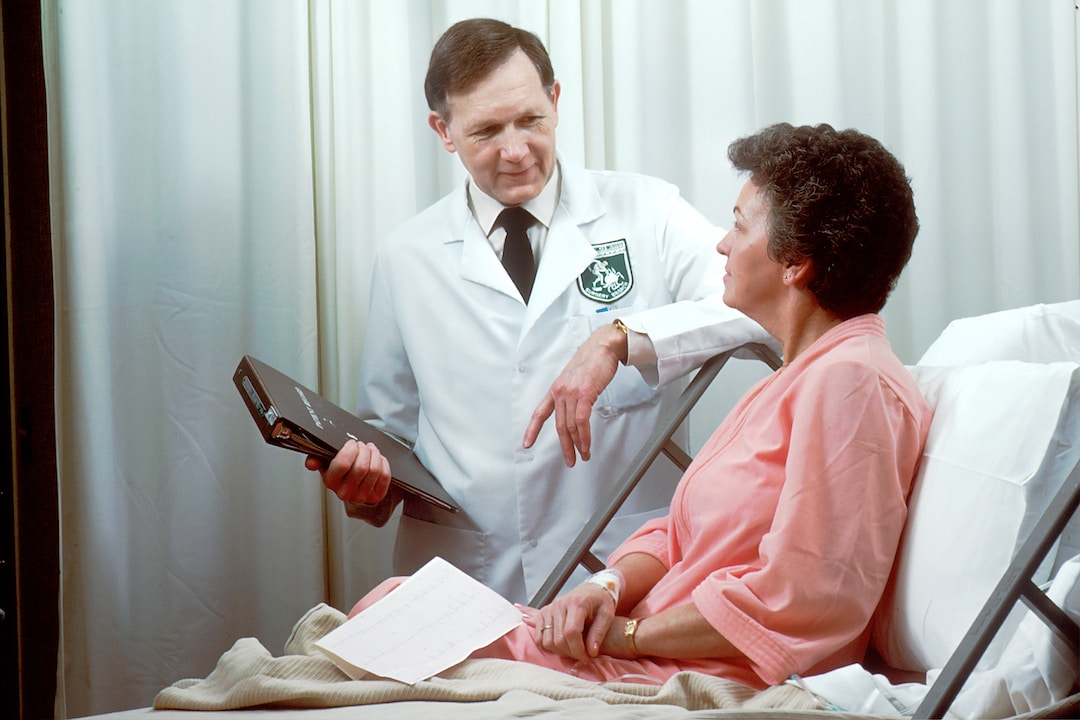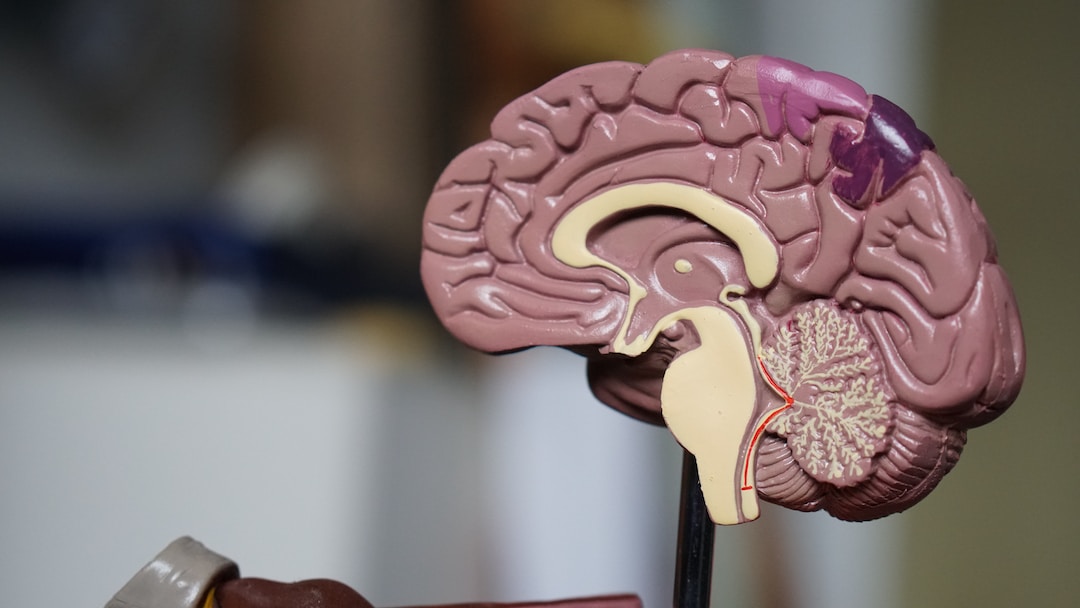Alzheimer’s disease is an irreversible, progressive brain disorder that slowly wrecks the memory and thinking skills and, eventually, the ability to carry out even the simplest tasks. It is the most common reason for dementia among older adults. The disease may seem mysterious, with numerous myths surrounding its cause, progression, and treatment. However, understanding the symptoms of Alzheimer’s can lead to early detection, maximizing the potential benefits of available treatments and allowing more time for people with Alzheimer’s and their families to plan for the future. In this article, we will be discussing the signs and symptoms of Alzheimer’s disease and debunk the commonly held myths surrounding Alzheimer’s disease.
Understanding Alzheimer’s: Definition and Overview
Alzheimer’s disease is a neurological disorder in which the brain cells slowly degenerate and die. This disease is the most common root of dementia—a continual decline in thought, behavioral, and social skills that disrupts a person’s capability to perform daily activities. By destroying memory and thinking skills, Alzheimer’s disease deprives a person of the ability to perform simple daily tasks. Dementia is a term for symptoms of cognitive decline, including problems with memory, thinking, and speech.
Alzheimer’s disease is the most common form of dementia. It affects one’s thoughts, memory, and language. As the disease advances to the late-stages, people may find it hard to perform essential tasks, eventually leading to death. Recognizing the what are the symptoms of Alzheimer’s is crucial for early detection and treatment. Alzheimer’s becomes severe over time, and there is currently no cure. Drugs and management strategies may temporarily improve symptoms and assist the individual and their family as they manage the disease.
Early Signs and Symptoms of Alzheimer’s
Despite common belief, Alzheimer’s is not a normal part of aging, although the chances of developing the disease increase with age. Most individuals with the disease are 65 and older. However, about 5 percent of people with the disease have early-onset Alzheimer’s (also known as younger-onset), which often appears when someone is in their 40s or 50s. The most common early symptom of Alzheimer’s is difficulty remembering newly learned information.
Just like the rest of us, individuals in the early stages of Alzheimer’s typically have trouble remembering certain things. Unlike age-related memory changes, this may eventually affect a person’s ability to accomplish everyday tasks. Over time, further symptoms with severity arise, like forgetting dates or events, asking for the same information repeatedly, and relying on memory aids or family members for things they could handle on their own before.
The Transition to Moderate Alzheimer’s

As Alzheimer’s disease progresses, individuals may start exhibiting more severe and noticeable symptoms. These could include getting confused about where they are or how they got there, struggling to complete regular tasks like preparing a meal or driving to a familiar location, forgetting their own personal history, and experiencing mood or personality changes. During this stage of Alzheimer’s, close friends and family begin to notice cognitive decline.
The individual may start withdrawing from hobbies, social activities, or work projects. They may also start forgetting their own address or telephone number, or the high school or college they attended. They may have trouble remembering the names of family members or close friends. Speech patterns may start to change as the person struggles to complete sentences or find the right word. This stage is typically the longest stage and can last for many years. As the disease progresses, symptoms will become more severe, and additional care and assistance will be needed.
Severe Alzheimer’s and End-of-Life Considerations
In the final stage of this disease, dementia symptoms become severe. Individuals lose the ability to carry on a conversation and, eventually, control their physical functions. They may have trouble swallowing, need assistance with grooming and personal hygiene, and lose bladder and bowel control. Their memory and cognitive skills continue to worsen, personality changes may take place, and they need round-the-clock assistance with daily activities and personal care.
Individuals with severe Alzheimer’s cannot communicate and are completely dependent on others for their care. In terms of end-of-life considerations, establish a comprehensive care plan that focuses on maintaining the person’s comfort and dignity. This includes managing their physical symptoms such as pain, ensuring a safe and comforting environment, and providing emotional support not only for the patient but also for the family and caregivers involved.
As end-of-life approaches, discussions about advanced directives and palliative care become a priority. Advanced directives, such as a living will or healthcare proxy, allow individuals to communicate their wishes regarding medical treatment and end-of-life care while they are still capable of making decisions. Take advantage of the resources available from top Alzheimer’s organizations as you put together your plan.
Diagnosis and Treatments

The diagnosis of Alzheimer’s Disease is primarily based on the person’s medical history, tests to assess memory, attention, counting, and language, and sometimes, brain scans. The physician will use these various diagnostic measures, including conducting a mental status assessment, to determine if Alzheimer’s disease is the most likely cause of the symptoms.
There is no known cure for Alzheimer’s disease. However, several treatments can control the symptoms and improve the quality of life. In some people, the medications can slow down the disease’s progression, particularly if they are diagnosed in the early stages. Beyond that, new medications are being approved regularly. Getting the right support and adjustments to your living situation can also make a huge difference in enabling you to live a positive and fulfilling life with Alzheimer’s.
Looking to The Future: Alzheimer’s Research
There is hope on the horizon for breakthroughs in Alzheimer’s research. With an ever-growing dedication to understanding the disease, researchers are exploring many promising lines of investigation, from genetic causes to lifestyle factors and the role of inflammation in the brain. Understanding Alzheimer’s and finding ways to prevent, slow down, and ultimately cure this disease have become some of the most urgent and widely addressed topics in medical research. Current research and future studies will pave the way for new methods of prevention and treatment. In the meantime, knowing early signs and staying informed about what is Alzheimer’s disease can ensure the individual and his or her family live the best life possible while managing the disease.
Towards a Future Without Alzheimer’s

If someone you care about has recently been diagnosed with Alzheimer’s, it’s important to start planning for the future. This can include discussions about health care, a living will, housing, and other legal and financial issues that may arise as the disease progresses. Carers and loved ones should also prepare for changes to their role and responsibilities over time.
Understanding Alzheimer’s disease, its symptoms, and its progression is critical for patients and caregivers. The better we understand Alzheimer’s, the better equipped we are to fight it. It is through this fight that we move closer to a future without Alzheimer’s. Everyone has a role to play in the fight against Alzheimer’s. Whether you are a patient, a caregiver, a friend, a medical professional, or a passionate person who wants to make a positive impact, your understanding and support can make a difference.
As this article has shown, although Alzheimer’s is a devastating disease, early detection and a better understanding of the illness can help families and individuals manage the condition more effectively. Knowledge is power when it comes to Alzheimer’s, and being equipped with the correct information can have immense value in the journey of living with this disease. Follow our advice and you can be as prepared as possible to identify Alzheimer’s in yourself or your family members.



 15 Most Healthiest & Nutritious Dishes Worldwide
15 Most Healthiest & Nutritious Dishes Worldwide




